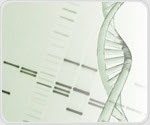| ||||||||||||||||||||||||||||||||||||||||||||||||||||||
| ||||||||||||||||||||||||||||||||||||||||||||||||||||||
| ||||||||||||||||||||||||||||||||||||||||||||||||||||||
| ||||||||||||||||||||||||||||||||||||||||||||||||||||||
| ||||||||||||||||||||||||||||||||||||||||||||||||||||||
| ||||||||||||||||||||||||||||||||||||||||||||||||||||||
miércoles, 7 de febrero de 2018
Genetics - Feb 7, 2018 Edition
Health News and Information - News Medical
Suscribirse a:
Enviar comentarios (Atom)


































.png)










No hay comentarios:
Publicar un comentario